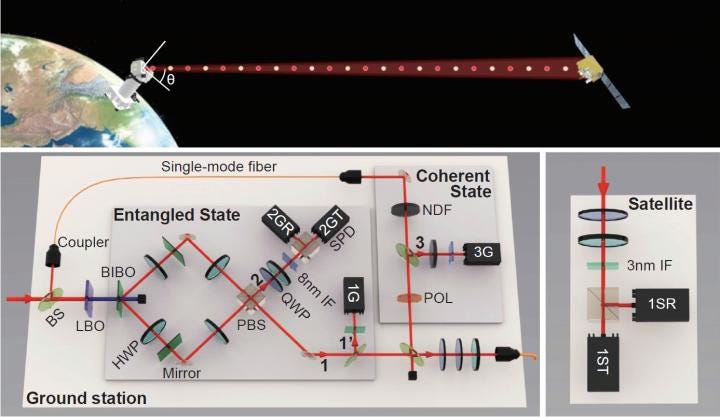
Quantum mechanics and general relativity represent the two most successful theories in 20th-century physics. But despite almost 100 years of continued experimental verification and practical application, researchers remain unable to unite the disciplines.
As general relativity describes the effects of gravity on Einstein’s four-dimensional spacetime — three dimensions of space and time — this means that a quantum theory of gravity continues to evade detection.
As the problem of unification remains unsolved, physicists put forward various models that require experimental verification.
A team of international researchers has developed a framework to test a model which may account for the breakdown of general relativity’s rules on the quantum scale. They tested this framework using the quantum satellite — Micius — a Chinese project which tests quantum phenomena in space.
The research — documented in a paper published in the journal Science — represents the first meaningful quantum optical experiment testing fundamental physics between quantum theory an gravity, says Jian-Wei Pan, director of the CAS centre for Excellence in Quantum Information and Quantum Physics at the University of Science and Technology of China.
Pan and his team wanted to test the event formalism model of quantum fields model — a theory that suggests that the correlation between entangled particles would collapse — a phenomenon known as decoherence — as they pass through the gravitational well of Earth. The idea is that the differences in the gravitational force would force decoherence as the particle experiencing less gravity would be able to travel with less constraint than its counterpart in an area of stronger gravity.
Pan suggests that event formalism presents a description of quantum fields existing in spacetime as described by general relativity — consisting of curvature caused by the presence of mass. Thus if the team can observe this model’s effects, they can imply the presence of quantum phenomena on a larger scale as described by general relativity.
Pan says: “If we did observe the deviation, it would mean that event formalism is correct, and we must substantially revise our understanding of the interplay between quantum theory and gravity theory.”
In their test, the team used pairs of particles described as ‘time-energy entangled’ — a recently discovered type of entanglement which photons are entangled in terms of their energies and the times they are detected.
The team was unable to detect the particles deviating from standard behaviour expected in quantum mechanics, but they plan to retest a version of their theory that is more flexible.
“We ruled out the strong version of event formalism, but there are other versions to test,” Pan says. “A modified model remains an open question.”
To put this revised version to the test a new satellite will be launched that will orbit up to sixty-times higher than Micius — enabling it to test a wider variation in gravitational field strength.
Original research: https://science.sciencemag.org/content/early/2019/09/18/science.aay5820









